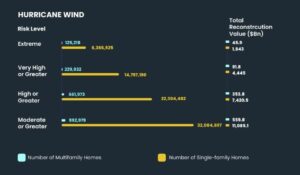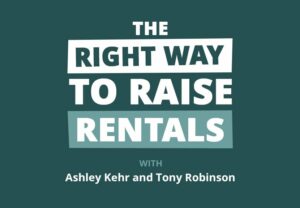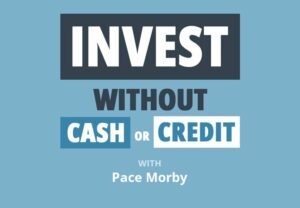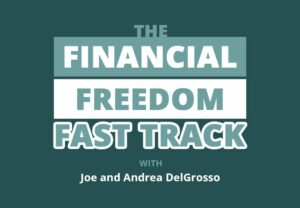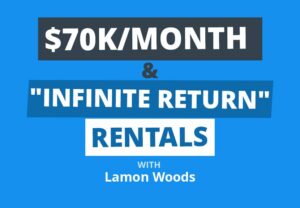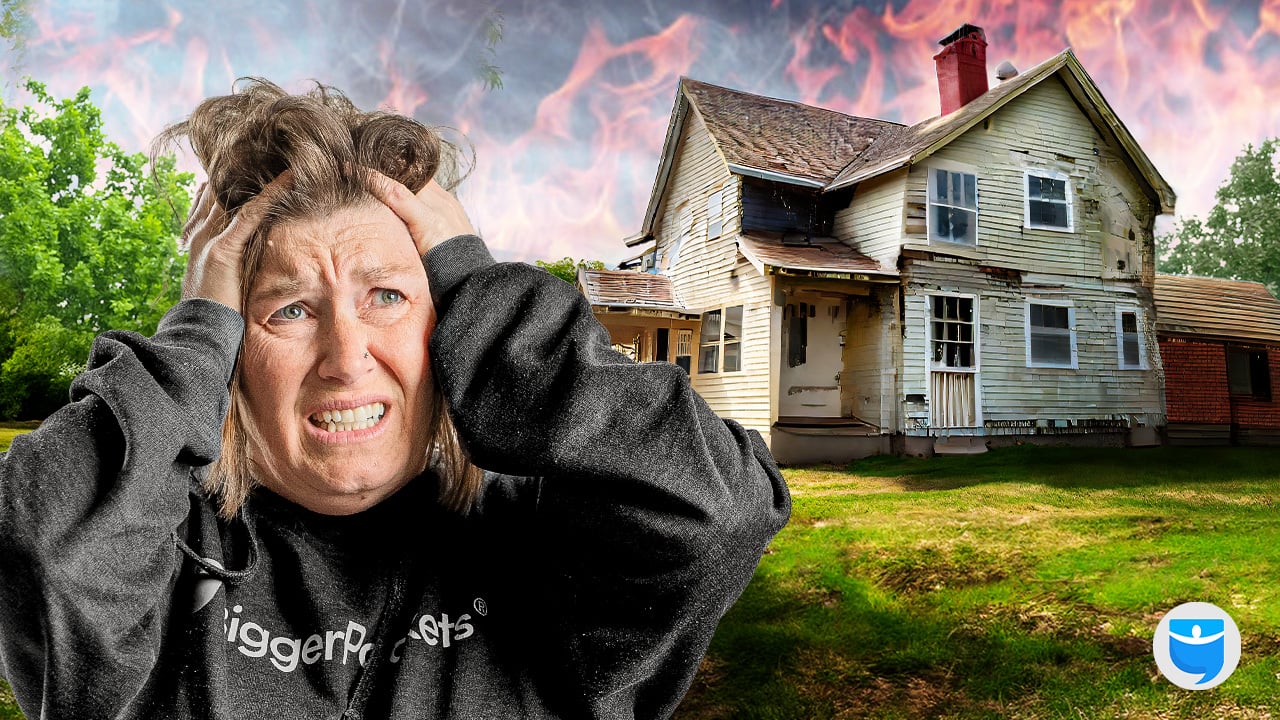
Real estate investing can make you rich or ruin you financially…if you’re not taking the proper precautions. Today, you’ll see just how easy it is to lose money on a bad real estate deal and how even the top investors, those with decades of experience, still can end up in a rough situation through no fault of their own. And while both the investors featured in this two-part series have made millions in real estate, they’ve also had a couple of deals gone wrong that have cost them hundreds of thousands.
In this episode, we’re talking to Mindy Jensen, host of the BiggerPockets Money podcast, about, as she calls it, “the house that almost broke me.” This property alone lost Mindy over a quarter of a million dollars, as she had to deal with crooked contractors, a once-in-a-lifetime flood, theft, and more. If you want to ensure you NEVER repeat the same mistakes as Mindy, listen to this ENTIRE episode before buying your next house.
And next time, we’ll be on with James Dainard, expert flipper and co-host of On the Market, to talk about his house flip that makes Mindy’s look like a walk in the park!
Click here to listen on Apple Podcasts.
Listen to the Podcast Here
Read the Transcript Here
David:
Welcome to the BiggerPockets podcast. Today we are going to be dropping into your feed with a bonus show. This is the first of two episodes about deals gone wrong.
Rob:
That’s right. Because David, if you can believe it, even expert investors like ourselves make bad deals, and we want you to learn from our mistakes so that you don’t go out and make the same said mistakes.
David:
That is right. Our heart wants to help protect you, your money, your future, and your wealth. So we’re going to be bringing you some mistakes that other investors made. Today’s episode will be Mindy, so you can hopefully avoid doing the same. This is one of the toughest real estate markets that I have ever seen. It is much more unforgivable than it’s ever been in the past. And the wrong deal can sink you.
Rob:
That’s right. And on today’s show, we’re going to actually be talking to Mindy Jensen about a deal that almost sank her quite literally and figuratively actually.
David:
So without further ado, let’s bring in Mindy. Welcome back. How are you two today?
Mindy:
I am doing great. Thank you for having me back, David. I am so excited to be BiggerPockets biggest loser. What did we talk about last time? My deal that was negative cashflow and now I’m talking about my deal that went wrong.
David:
Yeah, that’s one of our running jokes. Every time we do a show where we’re like, “All right, let’s talk about everything that went terrible. The dumpster fires of real estate,” we’re like, “Mindy and James. That’s our people. These are BiggerPockets biggest losers.”
Rob:
It’s the only time that you can brag about losing. It’s like, “All right, who here lost the most?” And it’s like, “Oh, I’ve got a good one.”
David:
All right. Mindy, how much did you lose on this deal? How much did it cost you?
Mindy:
Well, my deal took place in 2006 was when I made my original ARV. So I lost approximately $350,000 on paper and so many hours of sleep and so much stress and so much anxiety over this deal that just took forever. And.
Rob:
Now when you said ARV, do you think you could just briefly explain to people what you mean by that?
Mindy:
ARV stands for after rehab value or after repair value. So this was the projected amount that I thought this property was going to be worth after we had finished all the rehab we were doing.
Rob:
Got it. Okay. Okay, great. So a $350,000 paper loss. Not bad. Pretty good. David and I are going to run you through some rapid fire questions to get all the details on the deal and then we’ll pick apart where things went wrong. Mindy, let’s start with you.
Mindy:
I’m getting a little bit of heart palpitations here. This is the deal that almost broke me for real estate. I have loved real estate since as long as I can remember and this deal, I was like, “I am out.” This was our fifth live-in flip and our first pop top. It was our first time hiring contractors foreshadowing there.
Rob:
All right. So we’re going to jump into this deal. Before I do, you mentioned this as a pop top and just so that I’m clear on this, pop top is basically the concept of quote unquote “Chopping off the top of a property like the roof so that you can add another floor.” Right?
Mindy:
Yes.
Rob:
Okay, cool. Cool, cool, cool. All right, so when did this deal happen and how experienced were you?
Mindy:
This was our fifth live in flip and our first pop top and we purchased it in September of 2006.
Rob:
And just to recap here, this is a property, you said you had a $350,000 paper loss, right?
Mindy:
Correct. And I say paper loss because my projected ARV was 1.1 million in 2006 when we bought it, but my actual sales price in 2012 was $750,000.
David:
So by projected paper loss, you mean money you lost off of what you thought you would profit?
Mindy:
Yes. I didn’t actually lose $350,000. I was just hoping to have made 350,000 more than I actually made.
David:
Okay. And what kind of property was this?
Mindy:
This was a single family home located on the beautiful shores of Lake Monona in Monona, Wisconsin.
Rob:
And how did you find this property?
Mindy:
We had been looking for a deal on Lake Monona specifically, and we would just drive around. It’s not that big of a lake. We would just drive around and anytime there was a house for sale, we would stop in and see it or make an appointment with our real estate agent.
This particular property was up for auction and we attended the auction. It went for $700,000 and we were like, “Gosh, that stinks.” So we left and then five minutes later they were calling everybody, “Hey, the people who won the auction actually don’t have the funds to buy the house, so it’s back on the market.”
David:
This is what happens to those children in grade school that raised their hands. And then the teacher calls on them and they’re like, “Actually I don’t have anything to say.” They grow up to go to auctions and hold up a stick and then they don’t have the funds to actually. I always wondered how those kids turned out and now I know where they went.
Mindy:
They went to Monona, Wisconsin in 2006.
Rob:
All of them.
David:
So on this deal, how much did you end up paying for it, Mindy?
Mindy:
We ended up paying $535,000 for this house.
Rob:
Okay. And so what was the plan for this property? Was it meant to be a flip, rental, BRRRR, what was the ultimate exit strategy here?
Mindy:
It was going to be a live in flip and we had a two to five year timeline for the flip, two years because, at the minimum, because that’s what you have to live in for the section 121 exclusion where we don’t pay any capital gains taxes and five years because we wanted to be able to enjoy living on a [inaudible 00:05:23]
David:
How far into this deal did you get before things started to go wrong?
Mindy:
Oh, five minutes. This was almost a cursed.
Rob:
You left the closing table.
Mindy:
So we bought this house, my first daughter was born in February of 2007 and we bought this house in September of 2006. We weren’t living there full time until March after my baby was born. And we started work in March. And in April we had what is called a 500-year flood. The state of the house in April was that we had removed the brand new roof that they installed right before they put it on the market and added the second story.
We had the outside walls but no siding. We had the roof trusses and the plywood, but that’s not waterproof. And for some reason we had ripped out the driveway. So there was just mud. Then came the wind one night. There was tarps on the roof, the tarps got shredded. Then it started raining. A 500-year flood is the kind of flood that only happens once every 500 years.
It’s a weather event. We had water in the basement. I think it was six inches of water in the basement. It was raining all throughout the house because we didn’t have any sort of waterproofing up there. I had an infant, I had her in the middle of the bed in one room, which was the only place that wasn’t raining.
It was raining in the light fixtures, it was raining down the sides of the walls and it was just like we were watching this storm come through on weatherunderground.com and it was like purple. Yellow is light mist and red is like, “Wow, it’s really pouring outside.” And purple is like, “It’s a hurricane and a tornado all mixed up and they’re raining frogs.” And it was just like the most stress inducing and we couldn’t do anything except all night long just watch this storm come in and try to keep our baby dry.
Rob:
And so just to clarify, a 500-year flood property doesn’t mean that it only floods once every 500? It can flood many times in that 500 years. It’s just the really catastrophic floods are once every 500 years, right?
Mindy:
Yes.
Rob:
Yeah. Okay. So now you could sell it though and say, “Hey, you got 480 years before you have to worry about this.”
David:
Shouldn’t that make the value of the house go up?
Rob:
You have five centuries.
David:
We’ve already done all the heavy lifting for you. The worst is out of the way. Now you’re good.
Mindy:
That might not be the exact definition.
David:
It’s like a leasehold deal, but you have 500 years before the lease is up versus when you bought it was like you had a month or something before the rain started.
Mindy:
But wait, there’s more. Over that winter, Wisconsin got a record 101 inches of snow, which is not normal for Wisconsin at that time. And that snow all melted during a rainstorm in June. And I don’t know if you remember, I said we had flooding in the basement. We had more flooding in the basement because everything just melted and it didn’t have any place to go. So we cleaned up the basement and then we had more stuff and we cleaned up the basement again. We had just put all the flooring in the basement, so that’s good timing. It was Pergo, which is not waterproof. So that was ruined. Had to do that again.
Rob:
Right? You’re already going to pay a lot in the repairs, so you may as well save money on the people doing the repairs.
Mindy:
Exactly. It was going to be a hundred thousand dollars, but somebody else quoted us 150,000.
Rob:
That’s a $50,000 savings right there.
Mindy:
I’m saving money. It’s such a deal. Okay, so these contractors, one of them showed up to work drunk and then subsequently got fired. Oh, did I say that he was the foreman? Because he was. I think he was the only one who knew anything about construction, but he didn’t know anything about don’t do construction when you’re drunk. They stole from us. I had just had a baby. They stole my pain meds from my delivery, which I didn’t discover right away.
David:
You really scared us all right there, Mindy. We thought you were going to say they stole my baby.
Rob:
You did word that a very specific way that I was like, “Wait a minute.”
David:
This was heading down that Rumpelstiltskin path right there. They stole from us. I had just had a baby. Pause.
Mindy:
We had scope creep, we had cost creep, we had timeline creep. It was supposed to be all done in three months. It was not done until six months later. Sometimes they wouldn’t even show up to work. Sometimes they would. They’d show up, they’d work for an hour and then they’d leave. It was just this constant stressor, when are you going to be here? When am I going to see you? When are you going to get anything done?
Rob:
So it sounds like from the standpoint of what you learned that listeners can apply. First one is the cheapest contractor isn’t always the best contractor, lesson number one. And then it sounds like, was there some accountability learnings that you had there with sort of how to keep your contractors on track, on budget, on scope, all that stuff?
Mindy:
Yes. I need to do my due diligence. Whenever I hire a contractor, I need to call for references. I need to ask those references what the contractors did for them. The references that I checked for these guys all said that they were great guys. But I didn’t get a lot of, I got warm fuzzies, but I didn’t get, “Oh, they do great work and they’re always on time” and that kind of thing.
David:
Were the references local bartenders? “Great guy. Tipped well.”
Mindy:
Tips well, yeah. He’s awesome.
Rob:
That guy could smash a Coors, man. Tell you what.
David:
Knows the difference between a Manhattan and an Old Fashioned.
Mindy:
It was such a bad experience with contractors that we do most of the work ourselves on our live in flips. I know how to do electrical work and plumbing work and painting. And I have a very small list of things that I don’t do because it’s easier to learn a new skill than to properly vet a contractor for me. So yeah, that was a big lesson learned.
David:
What you described was real estate math. Right? “I need to save 50 grand. So instead of hiring a good contractor, I’ll hire a bad one and convince myself that I’ve saved 50 grand.” But then it spirals into a problem. Right? I was using it as an example that we’ve all made that mistake. We’re like, “I’m over budget. Let me skimp on the realtor. Let me hire a discount realtor because I can’t pay a full 3%” or “Let me use the bad contractor” or “Let me put in the cheap flooring.” And then the flooring bubbles up. It always ends up being more expensive than what it sounded like.
Mindy:
Yes. Now what I was going to say was the bottom line is run your numbers and run them again and make sure that they’re right. Cut costs where you can, but not on the important things. When you’re deciding on which tile to put in your house and it’s two of the same thing and one of them’s $12 a square foot and one of them is $3 a square foot. If it’s just like, “Oh, go with the $3 a square foot if it’s the same.” One’s porcelain and one ceramic. I hate porcelain tile. I always want to go with ceramic or stone. But don’t cut costs on your contractors. Don’t cut costs on the important things and don’t, oh my God, don’t skimp out on stupid stuff, but don’t look for ways to spend more money than you have to if you don’t have to.
Rob:
Can you tell us what did you do right that helped you get out of this or made it so that the deal didn’t completely sink you? Because most people would hear this story and be like, “Oh yeah, it must’ve been over for your real estate career.” So what happened? Give us a little bit of insight there.
Mindy:
What did I do right? I controlled a lot of the costs when it came time to do the finishing touches. My husband and I did the, we installed the flooring, we installed the bathrooms, we installed, we hired out to the drywall and then we did the rest of it. And we were able to kind of tweak the costs there because we had such a horrible experience with all these other people. We finished up with the contractors.
I was having a casual conversation with my dad who happens to be building a plant for his company at the time. And he threw in this comment, “Oh, make sure you get signed lien waivers from all the subcontractors before you give them their final payment.” And I was like, “Oh, I’ve never heard of this before. Tell me more about this.” And he explained to me that a lien waiver is a document that the contractor signs that says, “I will not place a lien on your house because I’ve been paid in full.”
And this saved me $11,000 because the drywaller did not get paid because those contractors were skeezy losers. And but I gave them the final check because they gave me the lien waivers from all the subcontractors. So subcontractors out there, don’t sign a lien waiver until you get paid. And if you’re making payments to your contractors, don’t pay them the final amount until you have signed lien waivers from all your contractors.
Rob:
That’s a good tip right there. So has this deal, bad experience helped you on any deals since?
Mindy:
Oh my God, yes. I don’t hire contractors anymore. We just do it all ourselves. We actually have hired a few contractors and we have thoroughly vetted them. And for the most part had good experiences. There’s no perfect way to vet somebody. They start off great and then they turn into terribleness. One great tip is to look at what they’re doing. We found our best contractor by, we were just walking around the neighborhood and we happened to see this house that was being worked on. We stopped by and they were there working.
They’re like, “Oh, you want to come in and see what we’re doing?” And they happened to have, it wasn’t drywall day yet, so all of the beams were open. And we were looking around, we’re like, “Wow, this is really cool.” And then he showed us how he does stairs. He’s got this really fabulous way to do stairs. You walk up the stairs, they don’t squeak. It’s just everything he was doing was like, “Woo, could we hire you?” He said, “We’ve got a couple more weeks here and then we can come over.” So being able to tour what they’re doing currently is a really great tip.
Rob:
If I had a dollar for every time that I’ve entered someone’s house that they didn’t know who I was because the contractor let me in, I’d have a pretty decent stack of $1 bills from when I knock on the door and I’m like, “Hey, who’s the drywaller here?” And he’s like, “Come in, let me show you.” And I’m like, “You can’t do this, but let’s do it.” Well, that’s awesome.
So sounds like, yeah, a couple of learning lessons here. Obviously vet your contractor, do some due diligence, keep them accountable. Don’t pay for the cheapest contractor. And your biggest learning lesson here is no one’s going to do the work better than you. So now you do a lot of your own work still and you’ve used that to prosper even through such a big tragic deal. The deal that almost broke Mindy Jensen.
Mindy:
The deal that almost broke Mindy Jensen. But it did not break me because I had so much in reserves. I have a lot of different buckets to choose from, and I am a huge proponent of having reserves. If you don’t have reserves, if you don’t have other places to fund these unexpected outsized costs or to fire this guy and hire this guy, even though it’s going to cost more, if you don’t have all these different buckets to choose from, you are going to get hosed.
You need to have reserves, you need to have way more than you think you do. And if you don’t, then you need to look into what are you doing, partner with somebody who has reserves, who has funds available so that you don’t find yourself in a pinch. Because if I ran out of money, I would’ve had a house with no roof that’s turning into a mold festival. And that’s just not good for anybody.
David:
And that is one of the reasons that we frequently tell people that real estate investing and building wealth is more than just the deal, it’s your overall financial picture. And having sound principles like saving your money and good work ethic that will help you to make more money, will both assist you greatly when it comes to putting the deals together.
And a big thanks to Mindy for dragging up the details of her deals so that we could all learn from it. Tune in tomorrow for more of the same as James takes his turn in the hot seat. And as always, if you’d like to connect with Rob, I or any of our guests, check out the show notes for this episode. This is David Greene for Rob. He’s a bad man Abasolo. Signing off.
Watch the Episode Here
Help Us Out!
Help us reach new listeners on iTunes by leaving us a rating and review! It takes just 30 seconds and instructions can be found here. Thanks! We really appreciate it!
In This Episode We Cover:
- How Mindy lost over $300,000 on ONE real estate investment
- The one “waiver” you MUST get signed before you hire a contractor
- DIY vs. hiring it out on home renovations and why Mindy does almost all her own work
- The “five-hundred-year flood” and the WRONG time to replace a roof
- Why you must have emergency reserves before you invest in ANY property
- And So Much More!
Links from the Show
Connect with Mindy:
Interested in learning more about today’s sponsors or becoming a BiggerPockets partner yourself? Email [email protected].
Note By BiggerPockets: These are opinions written by the author and do not necessarily represent the opinions of BiggerPockets.
- SEO Powered Content & PR Distribution. Get Amplified Today.
- PlatoData.Network Vertical Generative Ai. Empower Yourself. Access Here.
- PlatoAiStream. Web3 Intelligence. Knowledge Amplified. Access Here.
- PlatoESG. Carbon, CleanTech, Energy, Environment, Solar, Waste Management. Access Here.
- PlatoHealth. Biotech and Clinical Trials Intelligence. Access Here.
- Source: https://www.biggerpockets.com/blog/real-estate-857
- :has
- :is
- :not
- :where
- $3
- $UP
- 000
- 1
- 121
- 150
- 2006
- 2012
- 23
- 24
- 30
- 350
- 50
- 500
- a
- Able
- About
- accountability
- accountable
- actual
- actually
- add
- added
- After
- again
- Agent
- All
- almost
- already
- also
- always
- am
- amount
- an
- and
- Another
- Anxiety
- any
- anymore
- anything
- apart
- Apple
- Apply
- appointment
- appreciate
- approximately
- April
- ARE
- around
- AS
- ask
- assist
- At
- Auction
- Auctions
- author
- available
- avoid
- away
- Baby
- back
- Bad
- Basically
- BE
- beautiful
- because
- becoming
- been
- before
- being
- believe
- BEST
- Better
- between
- Big
- Biggest
- Bills
- Bit
- Bonus
- border
- born
- both
- Bottom
- bought
- brand
- Brand New
- Break
- briefly
- bring
- Bringing
- Broke
- budget
- Building
- but
- buy
- Buying
- by
- call
- called
- calling
- Calls
- came
- CAN
- capital
- Career
- casual
- catastrophic
- centuries
- cheap
- cheapest
- check
- checked
- Children
- Choose
- clear
- closing
- Co-Host
- COM
- come
- comes
- comment
- company
- completely
- concept
- Connect
- constant
- construction
- Contractor
- contractors
- controlled
- Conversation
- convince
- Cool
- Cost
- Costs
- could
- Couple
- cover
- Currently
- Cut
- cut costs
- Dad
- David
- day
- deal
- Deals
- decades
- decent
- Deciding
- definition
- delivery
- described
- details
- DID
- difference
- different
- diligence
- Discount
- discover
- Display
- do
- document
- does
- Doesn’t
- doing
- Dollar
- dollars
- done
- Dont
- Door
- down
- drive
- Dropping
- dry
- due
- Dumpster
- during
- easier
- easy
- else
- end
- ended
- ends
- enjoy
- ensure
- entered
- Entire
- episode
- Episodes
- estate
- Ether (ETH)
- Ethic
- Even
- Event
- EVER
- Every
- everybody
- everything
- example
- Except
- excited
- Exit
- Exit Strategy
- expensive
- experience
- experienced
- Experiences
- expert
- Explain
- explained
- family
- far
- featured
- February
- FESTIVAL
- few
- fifth
- final
- financial
- Find
- Fire
- fired
- fires
- First
- first time
- five
- Flip
- Flips
- flood
- Floor
- Foot
- For
- forever
- found
- frequently
- frogs
- from
- full
- fund
- funds
- further
- future
- Gains
- gave
- get
- getting
- Give
- Go
- God
- going
- gone
- good
- got
- grade
- grand
- great
- greatly
- Grow
- guests
- Guy
- had
- Hands
- happen
- happened
- happens
- hate
- Have
- having
- he
- Heading
- hear
- heard
- Heart
- heavy
- heavy lifting
- help
- helped
- her
- here
- Hidden
- hire
- Hiring
- his
- hold
- Home
- Hopefully
- hoping
- host
- HOT
- hour
- HOURS
- House
- How
- How To
- HTTPS
- huge
- hundred
- Hundreds
- hurricane
- i
- I’LL
- if
- important
- in
- inches
- insight
- instead
- instructions
- into
- Invest
- investing
- Investors
- IT
- iTunes
- james
- jpg
- jump
- june
- just
- Keep
- kids
- Kind
- Know
- lake
- Last
- later
- LEARN
- learned
- learning
- lease
- Leave
- leaving
- left
- lesson
- Lessons
- let
- LG
- lifting
- light
- like
- Line
- List
- little
- live
- living
- local
- located
- Long
- Look
- look like
- looking
- lose
- loser
- Losers
- losing
- loss
- lost
- Lot
- loved
- made
- make
- MAKES
- Making
- man
- many
- March
- Market
- Markets
- math
- May..
- me
- mean
- meant
- mentioned
- Middle
- might
- million
- millions
- minimum
- minute
- minutes
- mistake
- mistakes
- mixed
- money
- Month
- months
- more
- most
- much
- must
- my
- myself
- necessarily
- Need
- negative
- never
- New
- next
- night
- no
- None
- normal
- Notes
- now
- number
- numbers
- of
- off
- oh
- Okay
- Old
- on
- once
- ONE
- only
- open
- Opinions
- or
- original
- Other
- our
- ourselves
- out
- outside
- over
- overall
- own
- paid
- Pain
- painting
- Paper
- part
- particular
- partner
- past
- path
- pause
- Pay
- paying
- payment
- payments
- People
- perfect
- pick
- picture
- Place
- Places
- plan
- plant
- plato
- Plato Data Intelligence
- PlatoData
- player
- Plumbing
- podcast
- Podcasts
- pop
- pretty
- price
- principles
- Problem
- Profit
- projected
- proper
- properly
- property
- proponent
- prosper
- protect
- protected
- purchased
- put
- Putting
- Quarter
- Questions
- quite
- quote
- RAIN
- raised
- rapid
- rating
- reach
- real
- real estate
- real estate markets
- really
- realtor
- reason
- reasons
- recap
- record
- Red
- references
- rehab
- relative
- remember
- Removed
- repair
- repeat
- replace
- represent
- reserves
- REST
- Rich
- right
- ripped
- rob
- roof
- Room
- round
- ruin
- Run
- running
- Said
- sale
- sales
- same
- Save
- saved
- saving
- Savings
- say
- says
- scared
- School
- scope
- Second
- seconds
- Section
- see
- seen
- sell
- September
- Series
- she
- show
- showed
- Sides
- sign
- signed
- signing
- Signs
- since
- single
- situation
- SIX
- Six months
- skill
- sleep
- small
- Smash
- snow
- So
- some
- something
- sometimes
- Sound
- sounded
- specific
- specifically
- spend
- Sponsors
- square
- stack
- standpoint
- stands
- start
- started
- State
- Stick
- Still
- stole
- STONE
- Stop
- stopped
- Storm
- Story
- Strategy
- stress
- subcontractors
- Subsequently
- such
- supposed
- sure
- table
- takes
- taking
- Talk
- talking
- Taxes
- teacher
- tell
- terrible
- than
- thank
- thanks
- that
- The
- The State
- theft
- their
- Them
- then
- There.
- These
- they
- thing
- things
- think
- this
- thoroughly
- those
- though?
- thought
- thousand
- three
- Through
- throughout
- time
- timeline
- times
- timing
- tip
- to
- today
- today’s
- together
- tomorrow
- took
- top
- tornado
- touches
- Tour
- track
- Transcript
- try
- TURN
- Turned
- Turning
- tweak
- two
- ultimate
- Unexpected
- until
- us
- use
- used
- using
- value
- Versus
- very
- VET
- vetted
- Video
- vs
- wait
- walk
- walking
- want
- wanted
- wants
- warm
- was
- Watch
- watching
- Water
- Way..
- ways
- we
- Wealth
- Weather
- Weeks
- welcome
- WELL
- went
- were
- What
- What is
- when
- whenever
- which
- while
- WHO
- why
- will
- wind
- Winter
- Wisconsin
- with
- without
- Won
- Word
- Work
- worked
- working
- worry
- Worst
- worth
- would
- written
- Wrong
- year
- years
- yellow
- yes
- yet
- you
- Your
- yourself
- youtube
- zephyrnet

